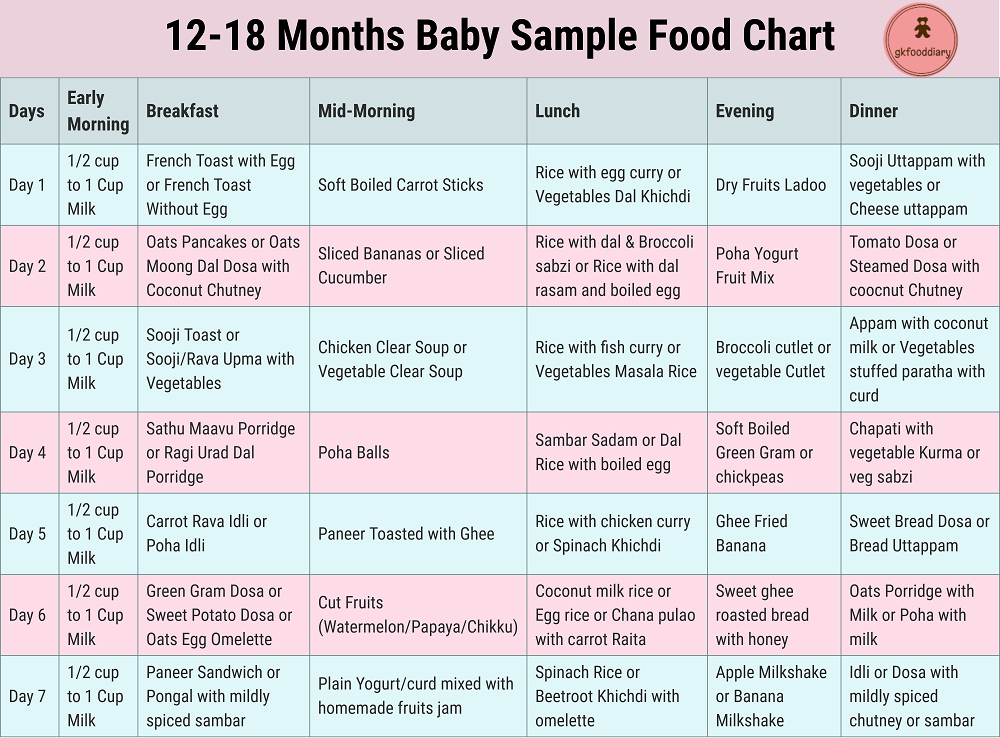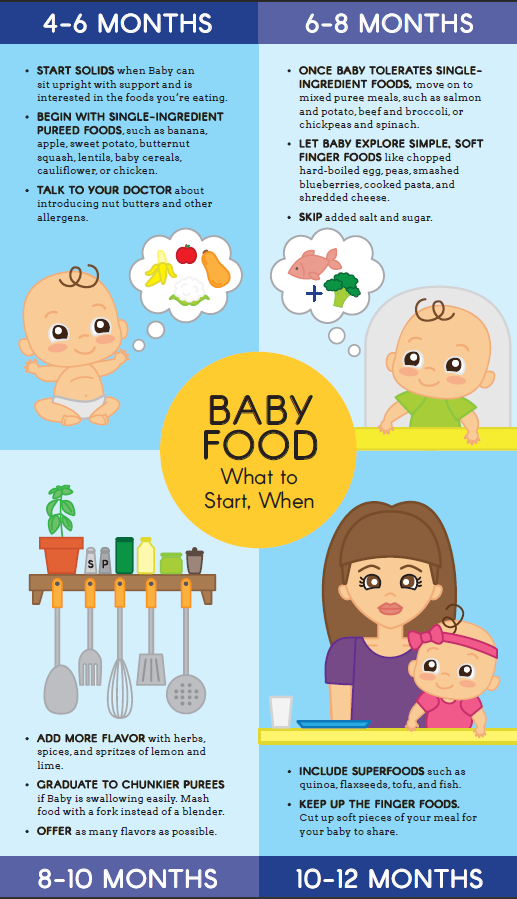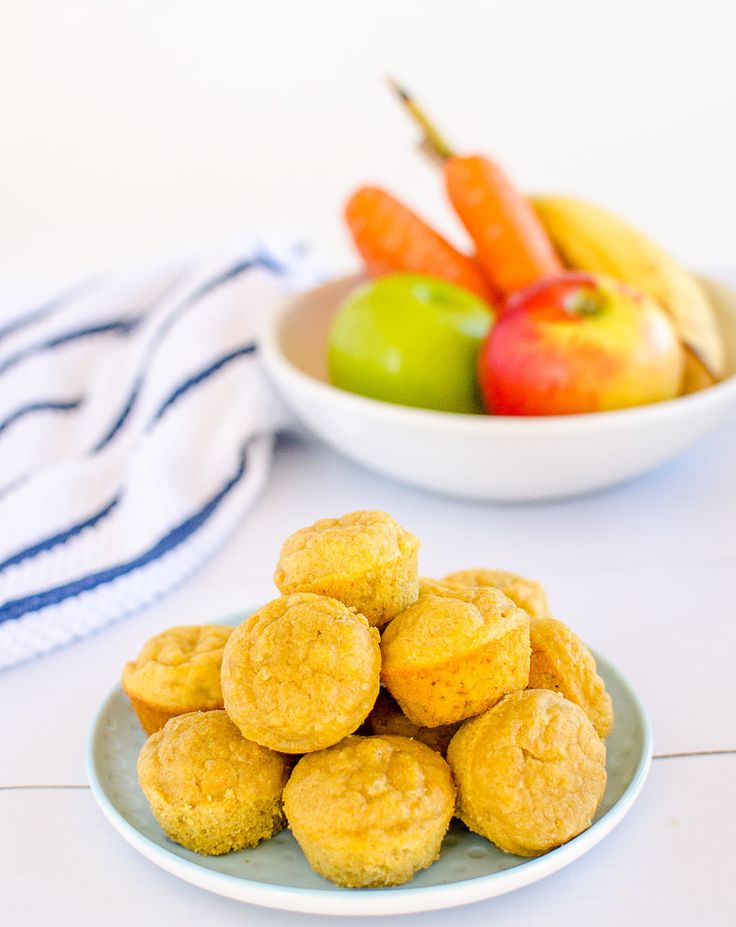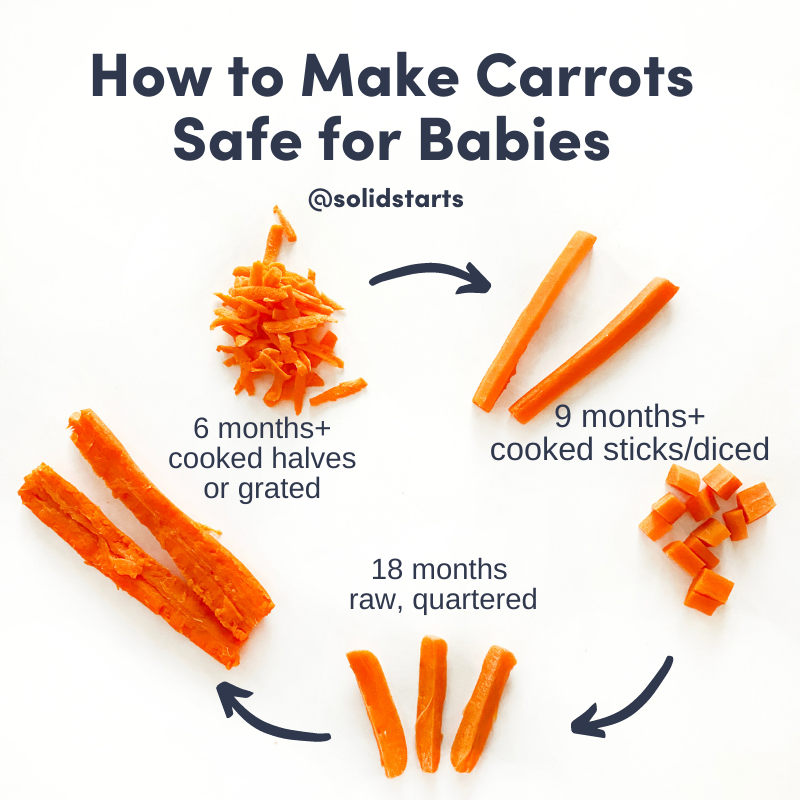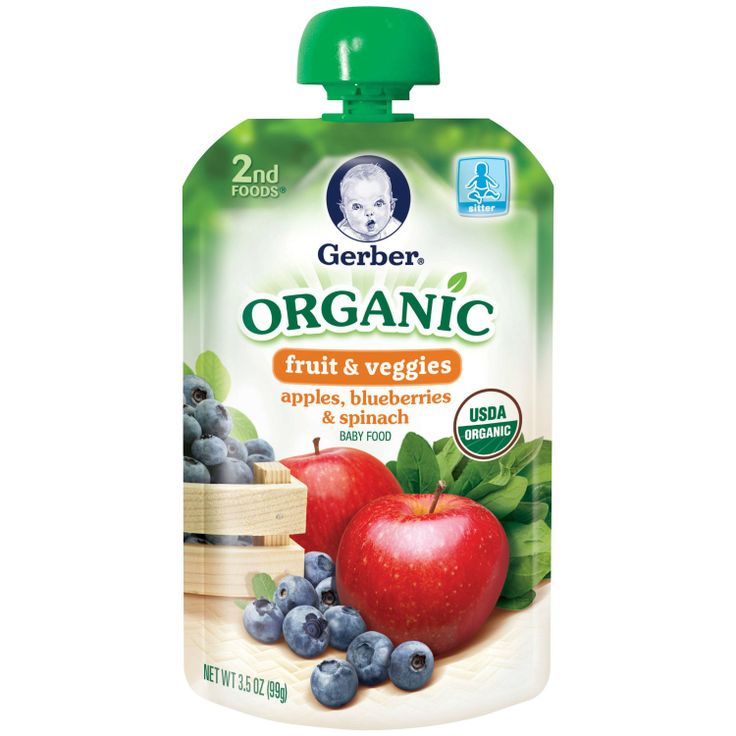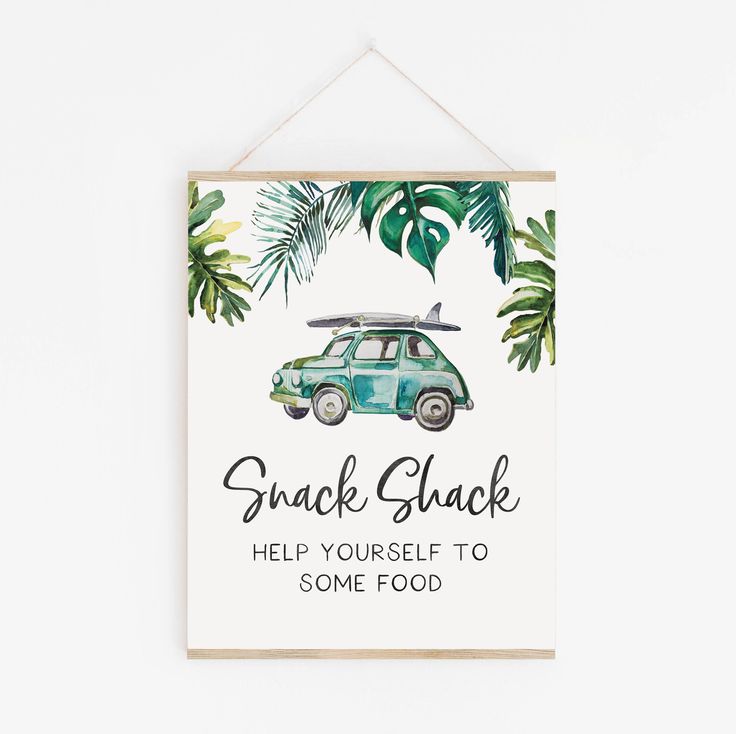Foods not to give a 6 month old baby
Foods to avoid giving babies and young children
Salt
Babies should not eat much salt, as it's not good for their kidneys.
Do not add salt to your baby's food or cooking water, and do not use stock cubes or gravy, as they're often high in salt.
Remember this when you're cooking for the family if you plan to give the same food to your baby.
Avoid salty foods like:
- bacon
- sausages
- chips with added salt
- crackers
- crisps
- ready meals
- takeaways
Sugar
Your baby does not need sugar.
By avoiding sugary snacks and drinks (including fruit juice and other fruit drinks), you'll help prevent tooth decay.
Saturated fat
Do not give your child too many foods that are high in saturated fat, such as crisps, biscuits and cakes.
Checking the nutrition labels can help you choose foods that are lower in saturated fat.
See more on food labels.
Honey
Occasionally, honey contains bacteria that can produce toxins in a baby's intestines, leading to infant botulism, which is a very serious illness.
Do not give your child honey until they're over 1 year old. Honey is a sugar, so avoiding it will also help prevent tooth decay.
Whole nuts and peanuts
Whole nuts and peanuts should not be given to children under 5 years old, as they can choke on them.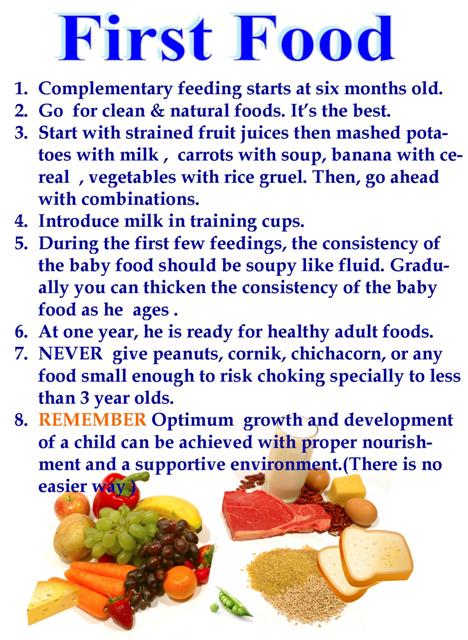
You can give your baby nuts and peanuts from around 6 months old, as long as they're crushed, ground or a smooth nut or peanut butter.
If there's a history of food allergies or other allergies in your family, talk to your GP or health visitor before introducing nuts and peanuts.
See more on food allergies in babies and young children.
Some cheeses
Cheese can form part of a healthy, balanced diet for babies and young children, and provides calcium, protein and vitamins.
Babies can eat pasteurised full-fat cheese from 6 months old. This includes hard cheeses, such as mild cheddar cheese, cottage cheese and cream cheese.
Babies and young children should not eat mould-ripened soft cheeses, such as brie or camembert, or ripened goats' milk cheese and soft blue-veined cheese, such as roquefort.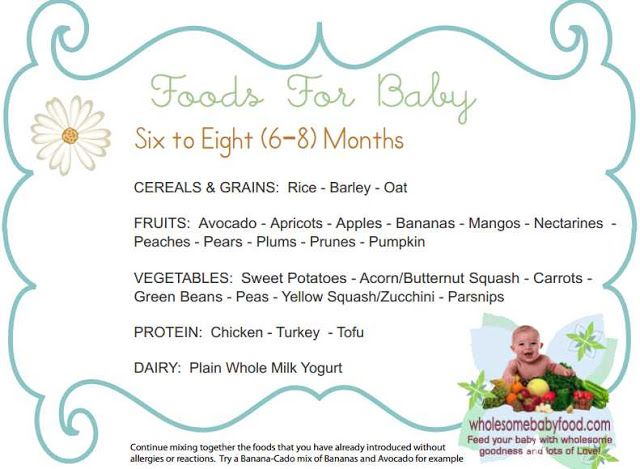 There's a higher risk that these cheeses might carry a bacteria called listeria.
There's a higher risk that these cheeses might carry a bacteria called listeria.
Many cheeses are made from unpasteurised milk. It's better to avoid these because of the risk of listeria.
You can check labels on cheeses to make sure they're made from pasteurised milk.
But these cheeses can be used as part of a cooked recipe as listeria is killed by cooking. Baked brie, for example, is a safer option.
Raw and lightly cooked eggs
Babies can have eggs from around 6 months.
If the eggs are hens' eggs and they have a red lion stamped on them, or you see a red lion with the words "British Lion Quality" on the box, it's fine for your baby to have them raw (for example, in homemade mayonnaise) or lightly cooked.
Hens' eggs that do not have the red lion mark should be cooked until both the white and yolk are solid.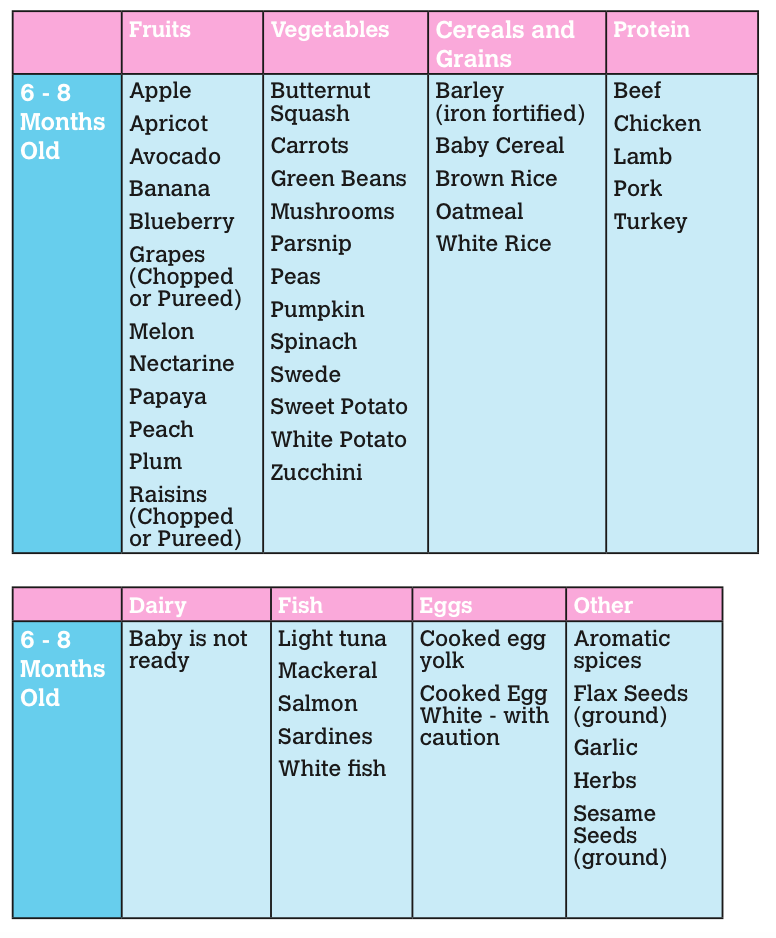 So should duck, goose or quail eggs.
So should duck, goose or quail eggs.
Avoid raw eggs, including uncooked cake mixture, homemade ice creams, homemade mayonnaise, or desserts that contain uncooked egg that you cannot confirm are red lion stamped.
Rice drinks
Children under 5 years old should not have rice drinks as a substitute for breast milk or infant formula (or cows' milk after 1 year old) as they may contain too much arsenic.
Arsenic is found naturally in the environment and can find its way into our food and water.
Rice tends to take up more arsenic than other grains, but this does not mean that you or your baby cannot eat rice.
In the UK, there are maximum levels of inorganic arsenic allowed in rice and rice products, and even stricter levels are set for foods intended for young children.
Do not worry if your child has already had rice drinks.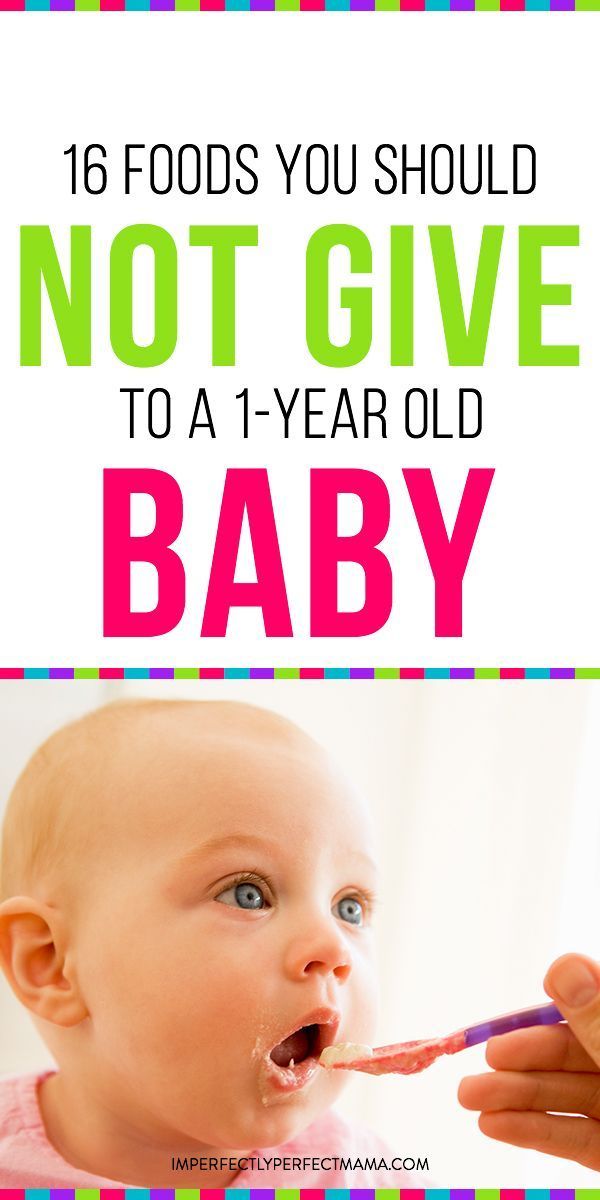 There's no immediate risk to them, but it's best to switch to a different kind of milk.
There's no immediate risk to them, but it's best to switch to a different kind of milk.
Raw jelly cubes
Raw jelly cubes can be a choking hazard for babies and young children.
If you're making jelly from raw jelly cubes, make sure you always follow the manufacturers' instructions.
Raw shellfish
Raw or lightly cooked shellfish, such as mussels, clams and oysters, can increase the risk of food poisoning, so it's best not to give it to babies.
Shark, swordfish and marlin
Do not give your baby shark, swordfish or marlin. The amount of mercury in these fish can affect the development of a baby's nervous system.
Further information
For more information and advice about babies and food, see:
- food allergies in babies and young children
- your baby's first solid foods
- baby and toddler meal ideas
Foods to Never Feed Your Baby (3 Months of Age to 1 Year)
According to the CDC, you can start introducing solid foods to your baby at around 6 months old.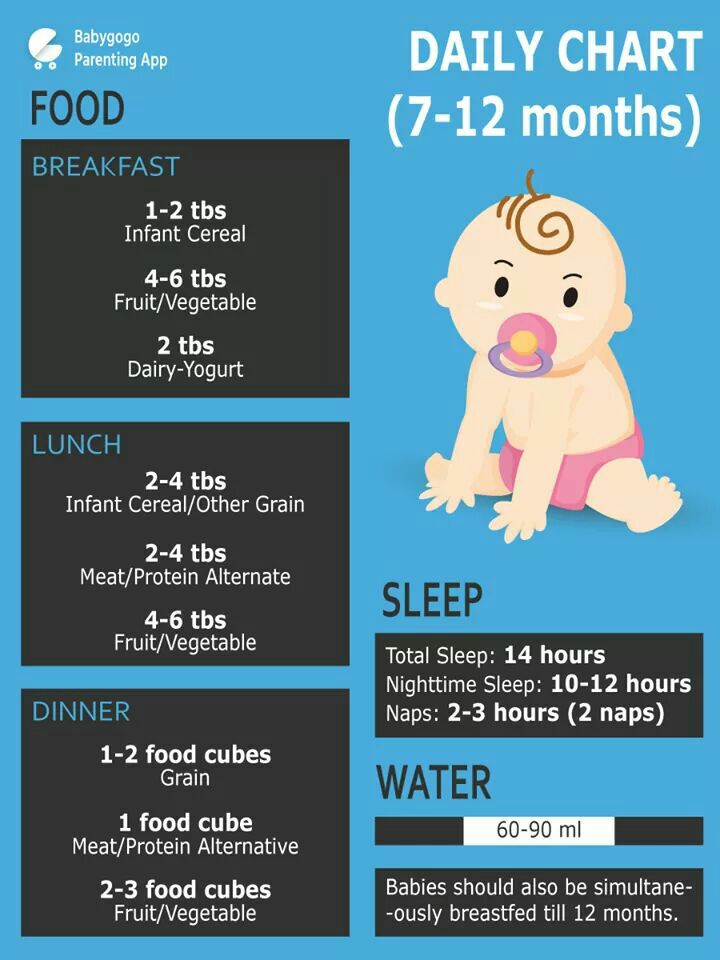 As long as they are receiving a balanced diet and a variety of nutrient-enriched foods, most vegetables, fruits, proteins, and grains. When it comes to more allergenic foods, it is best to introduce them after other baby-friendly foods. Always consult your pediatrician with concerns.
As long as they are receiving a balanced diet and a variety of nutrient-enriched foods, most vegetables, fruits, proteins, and grains. When it comes to more allergenic foods, it is best to introduce them after other baby-friendly foods. Always consult your pediatrician with concerns.
Growing babies soon start to show interest in trying new foods, and it's normal to want to introduce them to new tastes and textures. But not all foods are safe for your baby. Here is a list of foods you should avoid feeding your baby during the first year of growth.
More: Can You Eat Thanksgiving Turkey While Pregnant?
Pureed Foods vs Finger Foods
Babies are typically introduced to solid foods around six months of age. For newborns and babies less than six months old, solid foods may pose a choking hazard. So for young babies, many parents will turn to baby pureed foods. Pureed foods are softer than finger foods and easier on a baby’s digestive system. However, some parents turn to baby-led weaning which can also be a great option to introduce your little one to solid foods.
Honey
Infants under a year old should not be fed any form of honey (raw, baked, or cooked). Honey is bad for babies because it can harbor Clostridium botulinum, which can produce botulinum spores. These spores secrete toxins that can lead to muscle weakness, poor sucking, a weak cry, constipation, decreased muscle tone, and even paralysis in young infants. An infant's intestinal tract isn't strong enough to fight off these spores and toxins.
Infant botulism can be prevented by avoiding raw honey and avoiding contact with soil contaminated with the same C botulinum spores. This is rare and mostly found at agricultural sites in Utah, California, or Pennsylvania.
Cow's Milk
Stick to breast milk or formula until your child's first birthday. A child under the age of one can't digest the enzymes and proteins in cow's milk, and certain minerals in it can cause damage to your baby's kidneys. This is also true for certain dairy products such as cottage cheese.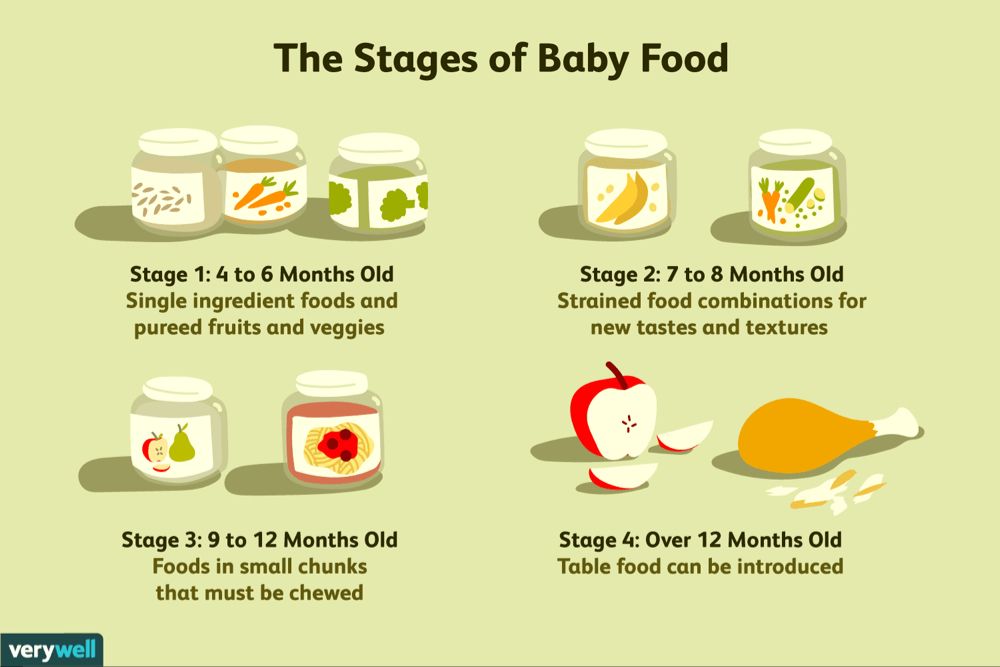 Also, unlike breast milk or formula, cow's milk doesn't provide all the proper nutrients for a growing infant. So if you are breastfeeding or if you are bottle feeding with breast milk or infant formula then keep doing so.
Also, unlike breast milk or formula, cow's milk doesn't provide all the proper nutrients for a growing infant. So if you are breastfeeding or if you are bottle feeding with breast milk or infant formula then keep doing so.
Egg Whites
Don't feed egg products to a child under the age of one, to avoid an allergic reaction or allergies in the future. While the proteins in egg yolks are seldom a source of allergens, the proteins in egg whites may cause allergic reactions. By the age of five, a child normally outgrows the potential for an allergic reaction to egg whites.
Citrus
Avoid feeding citrus fruits and juices to your baby for the first couple of months. These foods are high in Vitamin C and acid, which can cause an upset tummy and/or acid reflux in your baby. Remember, their digestive system is still developing.
Seafood/Shellfish
Another potential allergen for babies is seafood, and particularly shellfish. Talk to your pediatrician before feeding your baby boneless fish -- even tuna.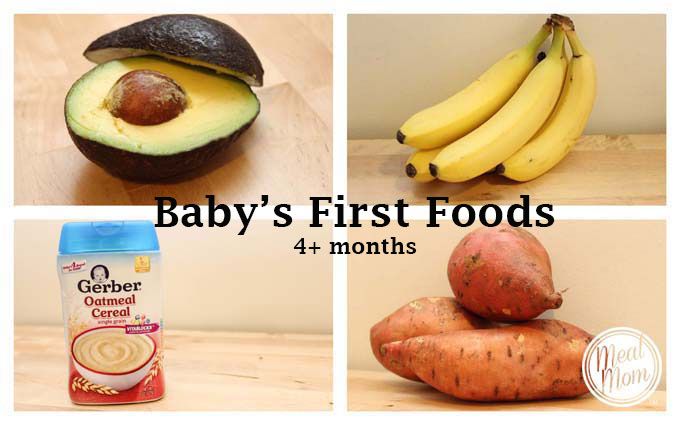 Do not give any sort of shellfish (such as shrimp, clams, swordfish, mackerel, or crabmeat) to your baby until it's been discussed.
Do not give any sort of shellfish (such as shrimp, clams, swordfish, mackerel, or crabmeat) to your baby until it's been discussed.
Wheat
Due to allergens in wheat, it is best to wait until your baby is one, two, or even three years old before introducing it into your baby's diet. If you have checked with your pediatrician and are sure that your baby hasn't had an allergic reaction to rice, oats, or barley, you may try introducing wheat at the age of eight or nine months.
Large Chunks of Food
It is widely recommended that you feed your child breast milk or formula for the first four to six months. Once you start baby on solids, pea-sized foods are safest, to prevent choking. Make sure that vegetables are diced and cooked up soft, and cut fruits into quarters to avoid them getting stuck in your child's throat. Meats and cheese should also be cut into very small pieces or shredded.
Soft, Sticky Foods
While most soft foods are good for young babies, some soft foods should be avoided.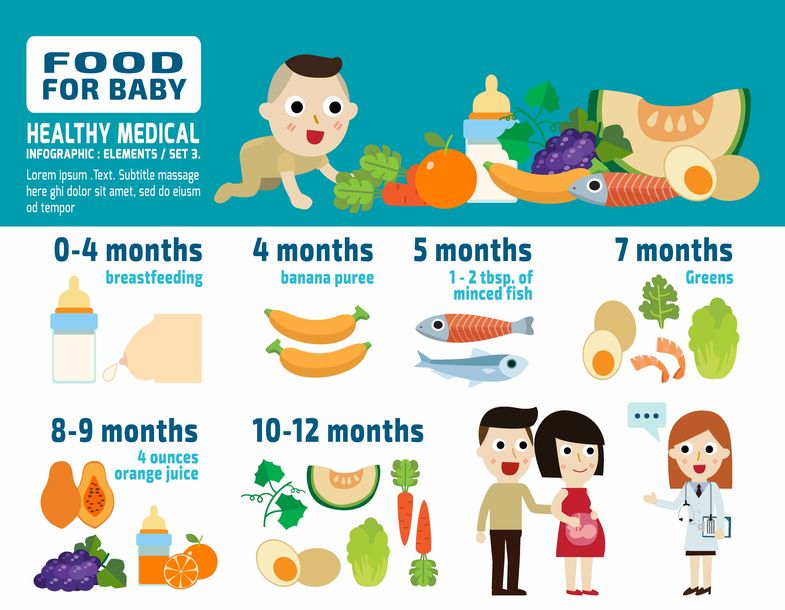 Sticky foods like jellies and marshmallows should not be fed to a baby before six months as these foods can get stuck in a baby’s throat and block the child’s airway.
Sticky foods like jellies and marshmallows should not be fed to a baby before six months as these foods can get stuck in a baby’s throat and block the child’s airway.
Small, Hard Foods
Foods like whole nuts, popcorn, whole grapes, raw vegetables, raisins, candies, dried fruits, seeds, or any other small, hard food should not be given to a baby. They are all choking hazards and can easily become lodged in your baby's throat. Any food you give your baby should be diced into small bits and cooked until soft.
Fruits
Below is some insight on certain fruits that many parents have questions about feeding their baby.
- Strawberries and raspberries: Many berries are packed with vitamin C and are good for babies and young children. The American Academy of Pediatrics that you hold off introducing these fruits until after they have tried other solids first.
- Pineapple: Pineapple is considered a safe food for your baby to eat. However, it is a firm fruit and should be sliced into thin strips since it can be a choking hazard when cubed.

- Melon: Watermelon is a good example of a first fruit you can offer to your baby. It is soft, easy to chew, and full of vitamins. It is made up of mostly water so it is also great for hydration.
- Papaya: This is a superfood that is super healthy and great for your baby. The recommendation is to wait to introduce it to your little one until they are 7 or 8 months old.
Vegetables
Vegetables are healthy options for kids, but when is the right age for babies to start eating their veggies? Here is a list of veggies and produce that parents have questions about. You can find below whether or not they are safe to give to your baby.
- Spinach: Believe it or not, raw spinach is full of nitrates. This is not to be confused with synthetic nitrates but is still not good to give much to little ones. It is recommended that if you give them spinach, make sure it is cooked and pureed.
- Lettuce: This can be hard for your baby to chew, so it's best to wait until they are between 9 months and 1 year old.
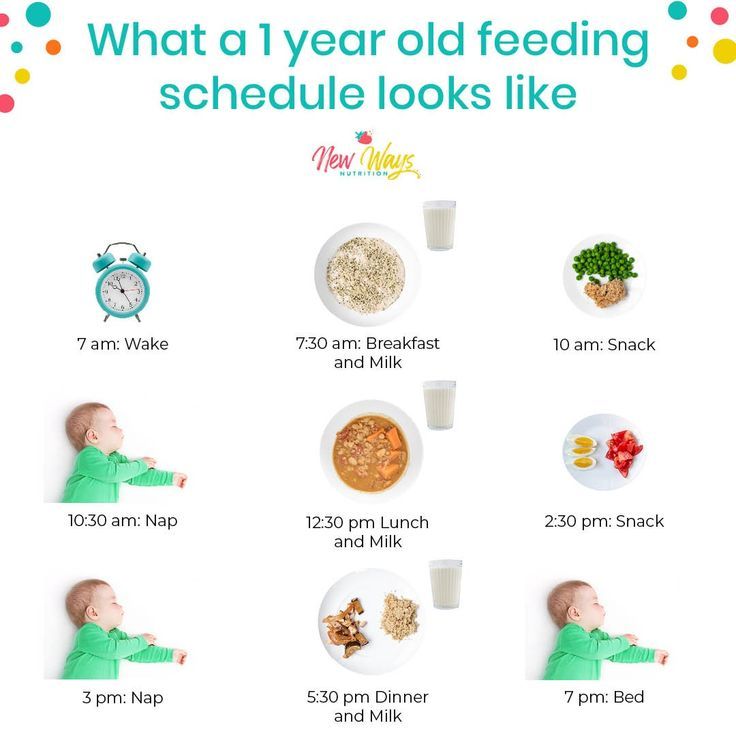
- Peas: Green peas are a great starter food. They are easy to pick up, offer a new texture, are small enough to avoid choking and can be pureed.
- Onions: Many parents add cooked onions to homemade baby food. They are full of vitamin C and can be introduced between 6 and 8 months old.
- Garlic: If you cook frequently then you know that garlic can add a whole new flavor to certain foods. You can cook down and add a small amount to your baby's food between 6 and 8 months old.
- Sweet Potatoes: This is another great first solid. Soft, cooked sweet potato cut into chunks is perfect for a 6-month-old.
- Potatoes: These are considered starchy vegetables so even though they are safe to give to your baby, you will want to do it in moderation.
Meats
Introducing meat to your baby's diet can happen after starting solids, which is usually around 6 months. Poultry and lean beef are fine to give your little one in small amounts.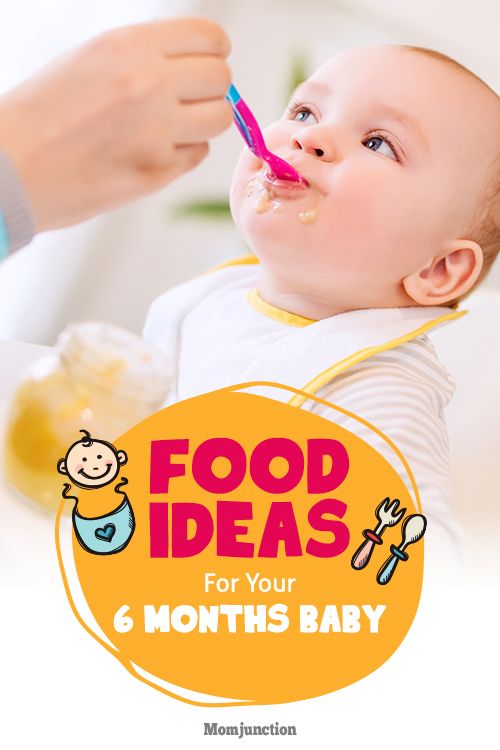 Below are two types of meat that should be avoided.
Below are two types of meat that should be avoided.
- Hotdogs: Hotdogs are a choking hazard. It is not recommended to give them to young children under 4 years of age. When they are old enough, they can be thinly sliced or minced.
- Bacon: It is best to wait until after your baby's first birthday to give them any bacon. It is full of synthetic nitrates and possible carcinogens. It is generally considered unhealthy and should be offered rarely.
Fruit Juice
Most juices are full of added sugar. Since babies are generally still drinking from bottles under 1 year old, it is not advisable to put fruit juice in them. It is known to cause tooth decay. Offer your baby a little water after 6 months if you are looking to give them something besides breast milk or infant formula.
What About Peanut Butter?
Experts previously believed that introducing peanut butter or any sort of nut product at an early age could lead to nut allergies.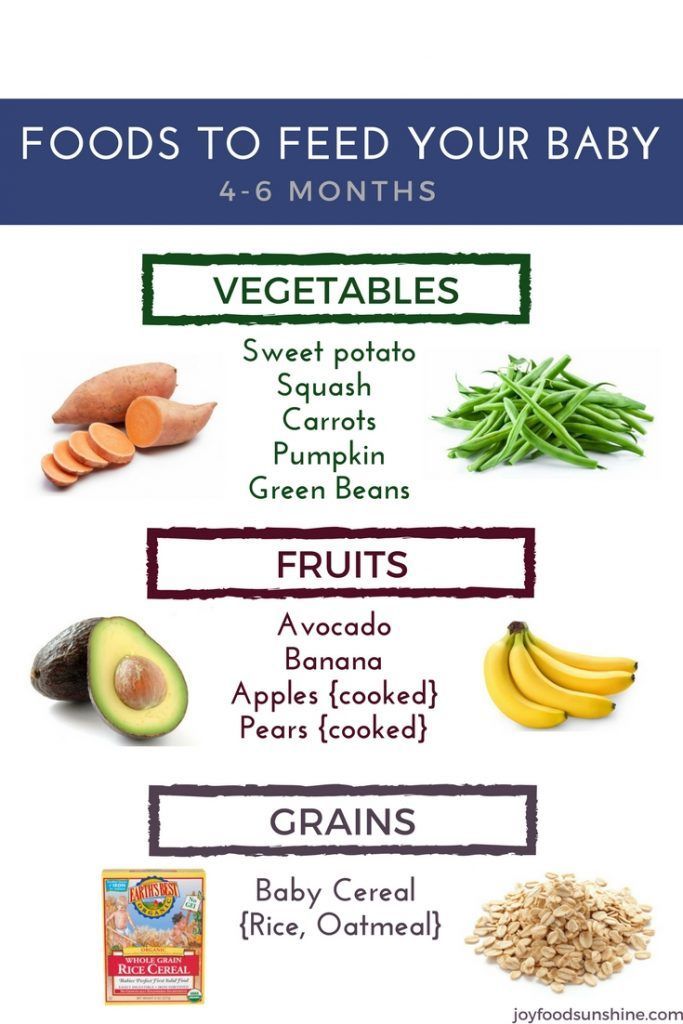 Times have changed and many pediatricians encourage the introduction of peanut butter to children between 6 and 8 months after they have tried a few solid foods with no issues. The AAP recommends talking with your pediatrician about introducing nut products to your baby, once he is eating solid foods. If your baby doesn't have any food allergies or risk factors, your doctor will probably advise feeding him a thin layer of creamy (not chunky) peanut butter on a cracker or bread, or foods that have peanut butter in them. Never give whole peanuts or nut pieces to a child under age 4 because of the choking risk.
Times have changed and many pediatricians encourage the introduction of peanut butter to children between 6 and 8 months after they have tried a few solid foods with no issues. The AAP recommends talking with your pediatrician about introducing nut products to your baby, once he is eating solid foods. If your baby doesn't have any food allergies or risk factors, your doctor will probably advise feeding him a thin layer of creamy (not chunky) peanut butter on a cracker or bread, or foods that have peanut butter in them. Never give whole peanuts or nut pieces to a child under age 4 because of the choking risk.
If your child is at high risk for a peanut allergy or other food allergies (because of family history or if he has an existing food allergy or eczema), your doctor might recommend doing allergy testing before introducing nut products or feeding your child nut products at the doctor's office in case of an allergic reaction.
7 foods that are undesirable to give to children under one year old
Of course, modern mothers know that sausages should not be given to babies, soda and cream cakes. What else can not eat children under one year old? We made a list of 7 less obvious foods.
What else can not eat children under one year old? We made a list of 7 less obvious foods.
1. Salt
Excess salt in the diet is harmful to the baby's kidneys and can lead to swelling and dehydration. Of course, a lack of salt is also not useful, but in real life, with a normal diet, it practically does not occur: salt is contained in sufficient quantities in most foods, and there is no need to add salt on purpose. And if for us, adults, baby purees and cereals without salt and sugar seem tasteless and disgusting, don’t worry, for a baby, the situation is completely different. nine0003
The taste perception of young children is not yet spoiled by excessively sweet and salty foods, flavors and flavor enhancers. If your child refuses mashed broccoli, then most likely he just does not like the taste and texture of broccoli, and not at all the lack of salt.
2. Sugar
Everyone knows the dangers of excess sugar - dental problems, obesity, associated cardiovascular diseases and the risk of developing diabetes.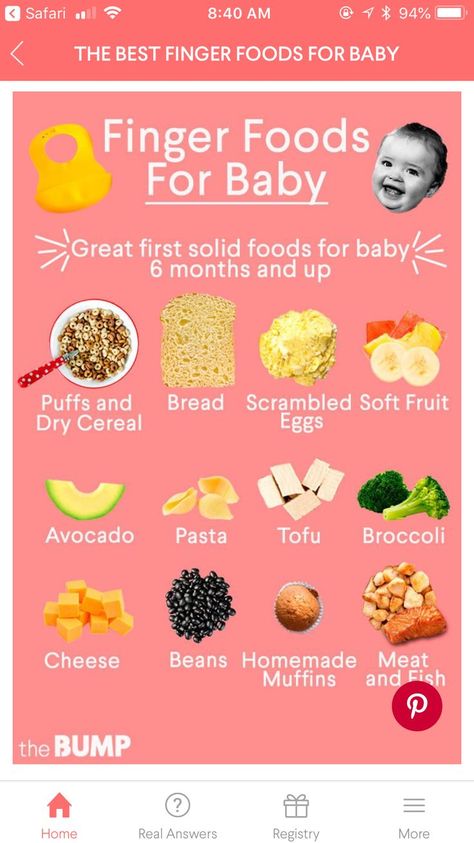 However, it can be very difficult to refuse a cookie or candy to a child familiar with the sweet taste, and tears are usually inevitable. What to do? nine0003
However, it can be very difficult to refuse a cookie or candy to a child familiar with the sweet taste, and tears are usually inevitable. What to do? nine0003
The secret is simple - introduce foods with added sugar into your baby's diet as late as possible, at the earliest in the year, although it is better to wait until two years. The National Nutrition Optimization Program for Children aged 1 to 3 years recommends limiting sugar in the diet of toddlers 1 to 3 years of age to 25-30 grams per day, taking into account the sugar found in special baby foods, juices, yogurts, etc.
3. Honey
It would seem that honey is a wonderful and healthy alternative to sugar, so why is it not recommended for babies under one year old? In fact, the reasons some. First, honey can contain spores bacteria Clostridium botulinum. The immune system of adults and children older people can easily cope with them, but in babies they can cause a deadly disease called infantile botulism.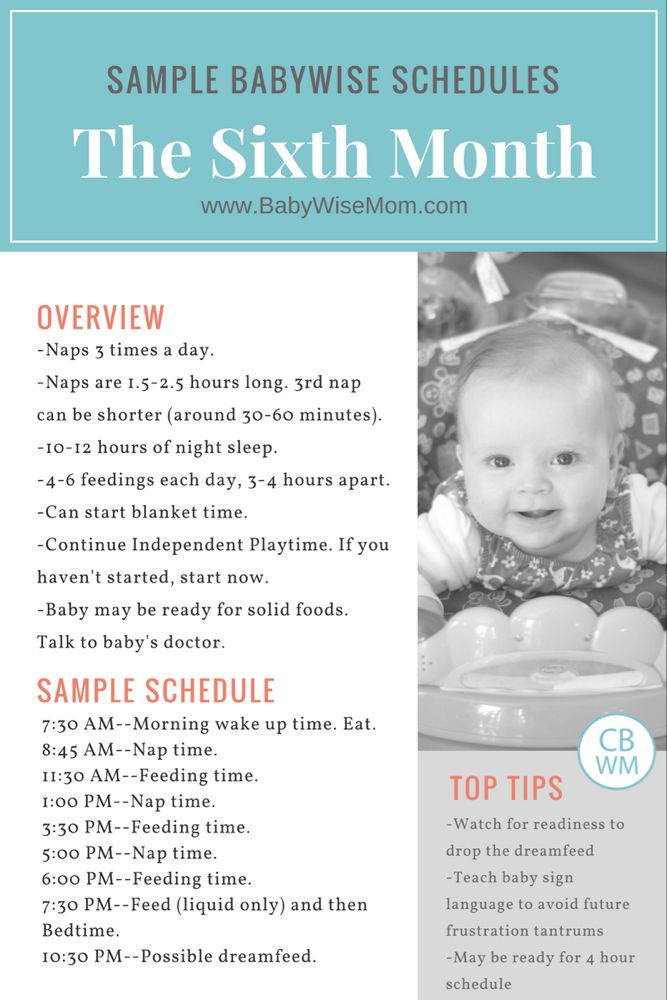 nine0003
nine0003
Secondly, honey is the strongest allergen, so it is better to postpone acquaintance with it until a later age.
4. Fruit juices and drinks
American Academy of Pediatrics (AAP) released in 2017 New recommendations for adequate intake of fruit juices in infants, young children and adolescents who begin with advice to completely avoid fruit juice for feeding infants life. According to AAP, excessive juice consumption can lead to diarrhea, overeating or, conversely, malnutrition, as well as to occurrence of dental caries*. At the same time, babies can and should be offered Whole fruit, mashed or pureed. nine0003
A various fruit drinks and nectars in addition to natural sugar from fruits often contain added sugar, which makes them perfectly unsuitable for feeding babies up to a year.
Breeding of juices and nectars with water does not completely solve the problem, since it does not reduce dental risks. If your child refuses to drink water, try compotes and fruit or herbal teas.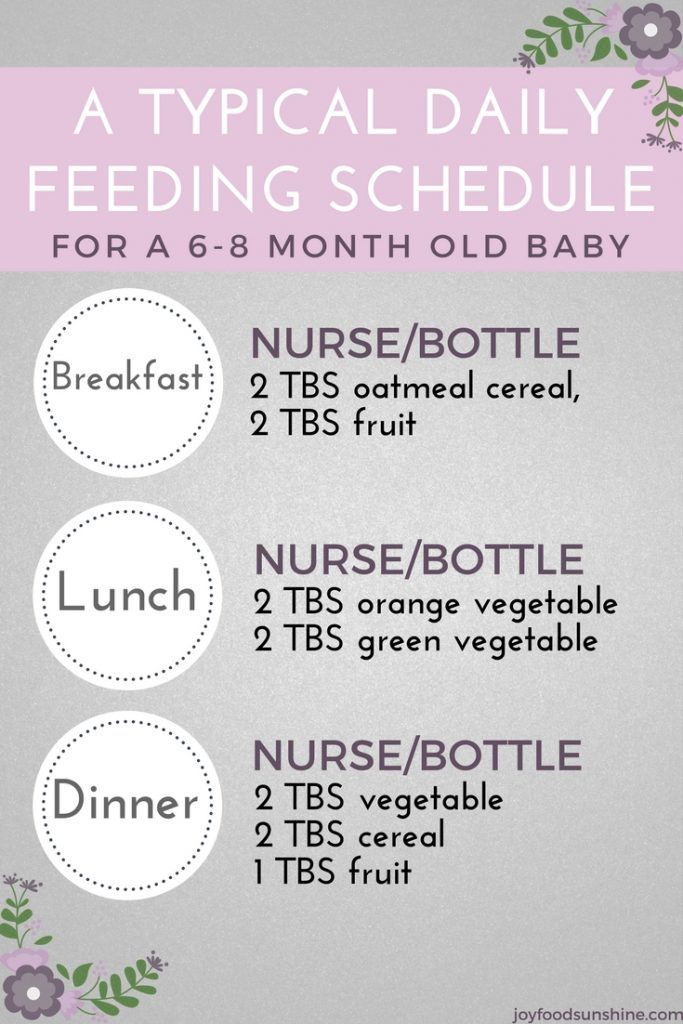
5. Foods that are easy to choke on
The danger of a product to children is determined by several characteristics: consistency, shape, and size. Most often babies gagging slippery, round, sticky, fibrous and hard products. nine0003
The most dangerous are all round and large enough to block the airways: lozenges, grapes, cherry tomatoes, nuts**. Not far behind in sad dangerous food rating other candies (especially sticky ones), fish bones and meat and, in fact, the meat itself ***.
Remember that theoretically a child can choke on any food, so never leave your baby unsupervised eating.
6. Egg white
Have you ever wondered why in all complementary feeding schemes is it the yolk, not the whole egg? Nothing surprising: egg protein is one of the strongest allergens. Up to a year is better limit the baby to only the yolk, and introduce the protein a little later.
Only make sure the eggs are thoroughly cooked.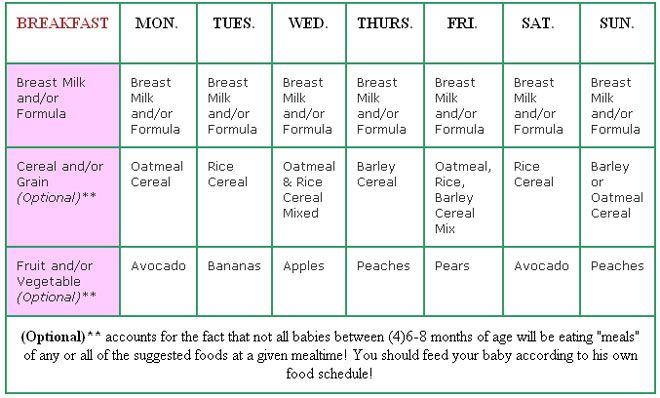 Raw and half-raw eggs may contain a bacterium that causes salmonellosis, a disease deadly for young children.
Raw and half-raw eggs may contain a bacterium that causes salmonellosis, a disease deadly for young children.
7. Cow and goat milk nine0005
Surprised? Whole cow's milk is the main cause of allergies in children under one year old. In addition, it contains a large amount of lactose, milk sugar, which some babies have difficulty digesting due to the fact that their gastrointestinal tract is not yet sufficiently developed. There are studies linking the early introduction of animal milk into the diet as a substitute for mother's milk or infant formula with an increased risk of iron deficiency anemia and type 1 diabetes. ****
Goat milk is actually not much different from cow milk, goat and cow are evolutionarily close, goat milk proteins are very similar in structure to cow proteins, and almost as often cause allergies.
It is advisable to introduce cow's milk into the diet of a child not earlier than 1 year. Interestingly, this rule does not apply to special children's fermented milk products, they are easier to digest and useful for babies.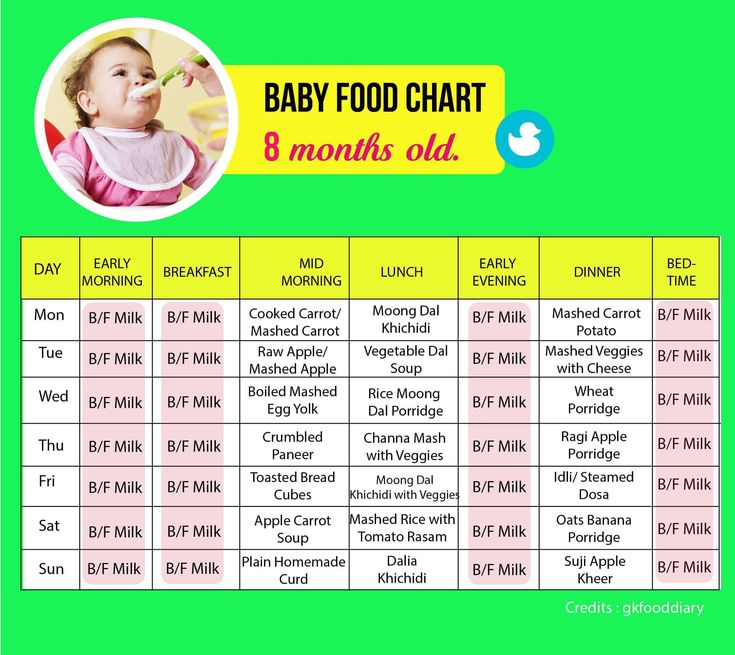
When using any materials from the site nutriclub.ru, a link to the site is required. nine0055
© Nutriclub, 2020
You will also be interested
- Nutriclub - healthy nutrition and child development
- 0-12 months
- Lure
- unwanted foods for children
What foods should not be given to children under one year old
The fact that babies under one year old should not be given most of the “goodies” - from chocolate to smoked lamb - is known to any parent without any advice, articles and special manuals. However, when compiling a children's menu, it must be borne in mind that there are many other products that seem completely harmless to the child, but which should not be given to the baby. nine0003
To help parents get their bearings, we'll talk about the main food prohibitions that apply at least until the moment the child celebrates his first birthday.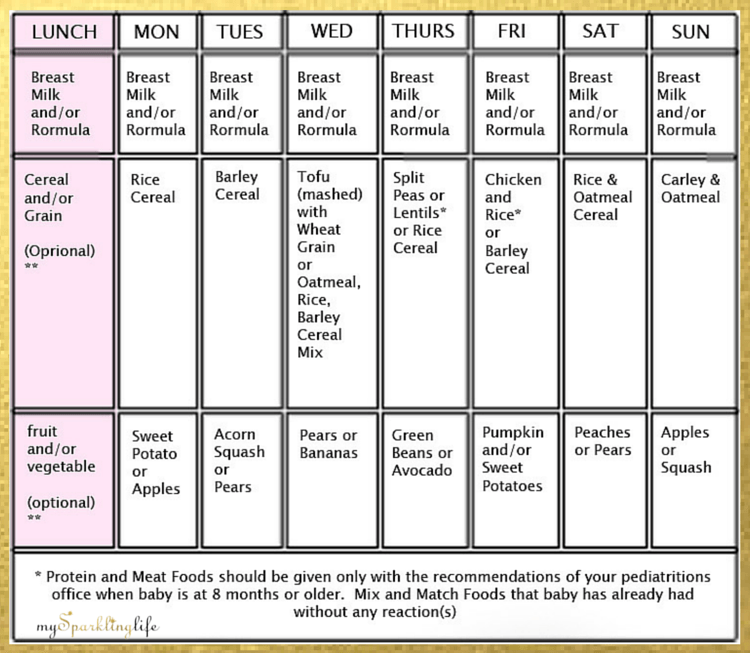
Seasonings and additives
The temptation to make a dish for a baby tastier and more interesting is always great, especially if the child cannot boast of a heroic appetite. But the harm from such culinary experiments far outweighs the benefits. In addition to various spices that irritate the still unformed digestive tract, various dyes, preservatives, stabilizers and flavors are banned. Salt also gets here, which can disrupt the water balance of a small organism. nine0003
Sugar and honey
“Sweet means delicious” - this is exactly the stereotype formed in a child if his mother indulges him with sugar-containing products in the first months of life. As a rule, premature exposure to sweets leads to weight problems by adolescence. Honey, in turn, is not recommended for children up to three years old, as it can cause allergic reactions.
Highly allergenic fruits and vegetables
Strawberries and oranges disappear from the family refrigerator even during pregnancy, as they threaten the unborn baby with allergies.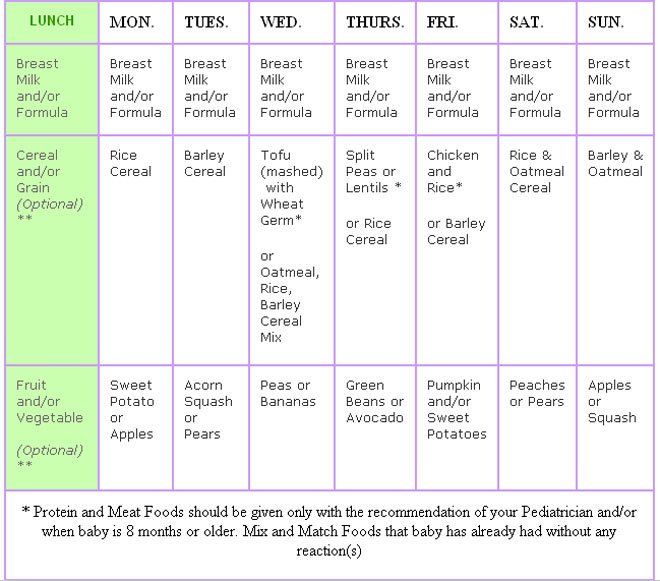 But with the rest of the gifts of gardens and orchards, you should be careful. The allergenic list includes most exotic fruits and vegetables: celery, legumes, various types of peppers, fruits and vegetables that have a bright color - strawberries, strawberries, citrus fruits, beets, tomatoes, etc. nine0003
But with the rest of the gifts of gardens and orchards, you should be careful. The allergenic list includes most exotic fruits and vegetables: celery, legumes, various types of peppers, fruits and vegetables that have a bright color - strawberries, strawberries, citrus fruits, beets, tomatoes, etc. nine0003
Your child may be in excellent health and will respond well to some of these foods. In any case, the introduction of new plant foods increases the burden on children's digestion. To ensure gradual addiction and, if necessary, quickly calculate the problematic ingredient, doctors urge to introduce no more than one fruit or vegetable per week.
Whole milk
In the past few years, doctors have been diligently debunking the myth about the unconditional benefits of whole milk for children in their first year of life. It really contains almost all the nutrients necessary for the development of the child. However, the problem is that children under a year old can hardly learn them normally. The fact is that cow's milk contains excessive amounts of proteins, mineral salts (sodium, potassium) for babies, and this adversely affects the functions of the digestive tract and immature kidneys of an infant, often leading to allergic reactions. nine0003
Dairy products
Kefir and cottage cheese are always present in baby food, especially closer to the year. But there is an important circumstance here: all these products must be made specifically for babies. "Adult sour milk" contains milk proteins that cannot be overpowered by the children's intestines. The use of such products provokes increased loss of hemoglobin and iron from the baby's body, and this leads to iron deficiency anemia.
Egg white
Just a few years ago, eggs, like milk, were considered in Russian practice an essential element of nutrition for the smallest. It was recommended to introduce yolks almost at 3-3.5 months. However, recently, domestic doctors do not recommend such an early introduction: because of an allergy to this product.